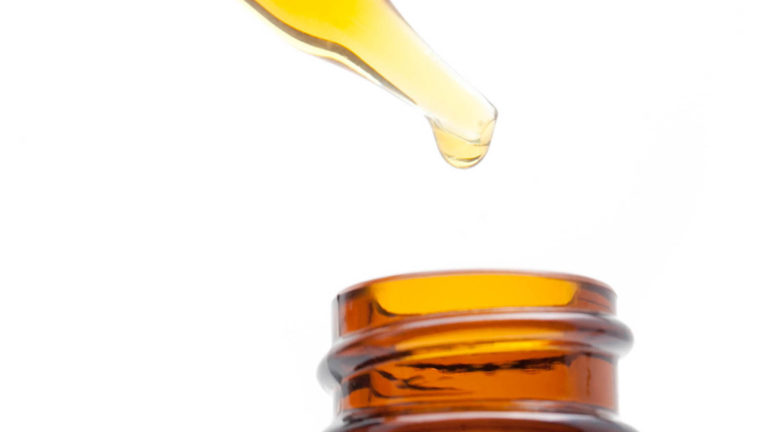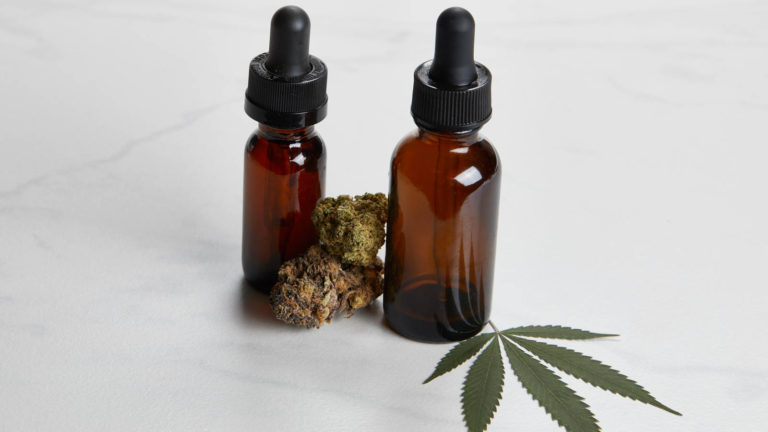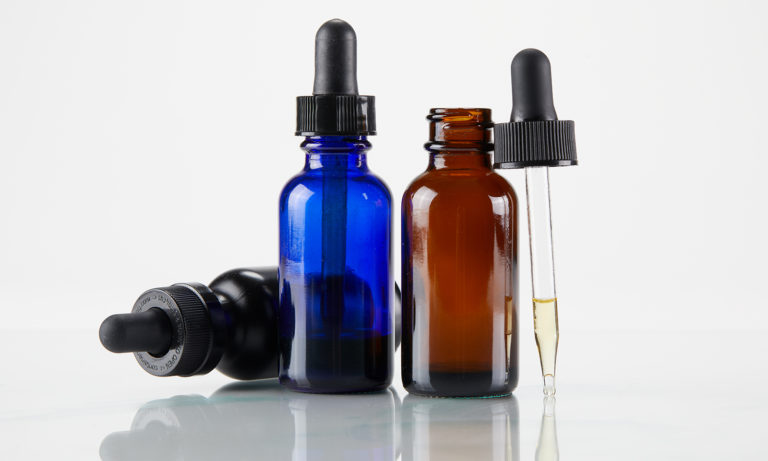CBD products derived from industrial hemp are legal in North Dakota. The passing of H.B. 1349 in March 2019 officially legalized the commercial production of hemp within the state. The bill also created a framework of regulations for the licensure of hemp.
North Dakota legalized medical marijuana in 2016. Patients with qualifying medical conditions can access medical cannabis products, including CBD derived from marijuana. Adult-use cannabis is illegal in the state, although low-level marijuana possession was decriminalized in May 2019.
What is CBD?
CBD stands for cannabidiol, a non-intoxicating substance found in cannabis. CBD is the second-most prominent cannabinoid in cannabis after THC, which has an intoxicating or psychoactive effect. CBD can be sourced from marijuana or hemp plants and has a wide range of purported therapeutic benefits, such as reducing pain, inflammation, and anxiety, and suppressing seizures. Since the cannabinoid has gained considerable attention for its therapeutic properties, more high-CBD strains have recently been cultivated.
 Photo by: Gina Coleman/Weedmaps
Photo by: Gina Coleman/WeedmapsImage lightbox

Why is CBD sometimes illegal?
All types of cannabis, including hemp strains that don't produce enough THC to cause intoxication, were considered illegal under the Federal Controlled Substances Act of 1970. The law categorized all cannabis as Schedule 1, which defined the plant as a highly addictive substance with a high potential for abuse and no accepted medical use.
The 2018 Farm Bill re-classified hemp as an agricultural commodity, and made its cultivation federally legal. Further, the act removed some forms of cannabis from Schedule 1 status by creating a legal distinction between hemp and marijuana. Hemp is cannabis with less than 0.3% THC, and marijuana refers to cannabis with more than 0.3% THC. This distinction in federal law effectively legalized CBD that is derived from cannabis with less than 0.3% THC, as long as it's been cultivated according to federal and state regulations.
The 2018 Farm Bill legislation does not mean that CBD derived from hemp is universally legal throughout the United States. According to the Farm Bill, the Food and Drug Administration (FDA) has the power to regulate CBD product labeling, including therapeutic claims and the use of CBD as a food additive. The FDA has already maintained that even hemp-derived CBD may not legally be added to food and beverages, or marketed as a dietary supplement. Although the organization has begun to re-evaluate some of these stances on legal CBD products, the FDA has not revised its regulations. The agency also has been strict in its stance against any labeling that could be perceived as a medical claim about CBD.
In addition to federal regulation of CBD, the Farm Bill also gave states the option to regulate and prohibit the cultivation and commerce of CBD. States may also regulate CBD in food, beverages, dietary supplements, and cosmetic products independently, even before the FDA finalizes its policies.
North Dakota CBD laws
The North Dakota Senate passed H.B. 1349 in March 2019 in the wake of the 2018 Farm Bill. H.B. 1349 created laws and guidelines for a commercial hemp program in the state. According to the bill, hemp is considered an agricultural commodity that will be regulated by the North Dakota Department of Agriculture. H.B. 1349 defines hemp as containing 0.3% THC or less, which conforms to the federal definition of hemp.
 Photo by: Gina Coleman/Weedmaps
Photo by: Gina Coleman/WeedmapsImage lightbox

In April 2019, HB 1113 changed the definition of marijuana to exclude hemp explicitly. While the two bills lack specific wording with relation to CBD, CBD products derived from hemp are legally available for purchase in North Dakota.
According to HB 1113, CBD products derived from marijuana are considered a controlled Schedule 1 substance. Only CBD products in a completed dosage formulation that have been approved by the FDA are permitted for purchase from licensed dispensaries within the state. The purchase of marijuana-derived CBD products is strictly limited to registered medical marijuana patients.
Licensing requirements for CBD
North Dakota was one of many states that moved to regulate hemp as an agricultural commodity following the 2018 Farm Bill. According to HB 1349, those interested in holding a license to produce hemp must apply through the commissioner of the Department of Agriculture.
All applicants are subject to a nationwide background check. Applicants convicted of a felony related to a controlled substance in the past ten years will be denied licensure. The license fee will not exceed more than $350 a year. Those who violate regulations, by growing a crop with more than 0.3% THC or failing to obtain a license will be given a chance to come into compliance. Those who violate regulations will have their crops destroyed at personal cost. Habitual or intentional violators will be turned over to local law enforcement.
North Dakota CBD possession limits
There are presently no hemp-derived CBD possession limits in North Dakota.
There are possession limits in place for marijuana and products derived from marijuana. Those in possession of less than half an ounce of marijuana may be charged with a criminal infraction and receive a maximum fine of up to $1,000.
Those with more than half an ounce to 500 grams may be charged with a misdemeanor, receive a prison sentence of 30 days and a maximum fine of $1,500.
Those with more than 500 grams may be charged with a misdemeanor, be imprisoned for up to one year, and receive a maximum fine of $3,000.
Registered medical marijuana patients may possess up to three ounces of medical marijuana or medical marijuana products provided by a state dispensary over thirty days. These include marijuana-derived CBD.
Where to buy CBD in North Dakota
North Dakota does not currently have a wide array of retail stores carrying hemp CBD products. CBD oil can only be found in some vape stores and specialty stores in the state. It's likely more retailers will carry CBD products as hemp production ramps up. CBD products derived from marijuana are only available from licensed dispensaries.
 Photo by: Gina Coleman/Weedmaps
Photo by: Gina Coleman/WeedmapsImage lightbox

Shopping online for CBD represents another option for purchase. Consumers can shop from a wide variety of online outlets for CBD products, read consumer reviews, and ship purchases to their homes. Online shopping also offers the ability to gather detailed information about each product, compare different products and product types, and comparison shop for the best price.
CBD brands often also have their own e-commerce shop, allowing you to purchase your desired CBD products straight from the source. Find out more about where to purchase CBD.
How to read CBD labels and packaging
The 2018 Farm Bill shifted the oversight of hemp and hemp-derived products from the U.S. Department of Justice (DOJ) to the U.S. Food and Drug Administration (FDA). The FDA does not presently allow CBD-infused food, drinks, or dietary supplements to be sold, and hasn't yet provided regulations for hemp-derived CBD products.
Still, the agency warns that regulations in flux still require companies to make legitimate claims on their labels. Buyers should nonetheless approach CBD products with caution. Most reputable CBD producers typically include the following information on their CBD product labels:
- Amount of active CBD per serving.
- Supplement Fact panel, including other ingredients.
- Net weight.
- Manufacturer or distributor name.
- Suggested use.
- Full-spectrum, broad-spectrum, or isolate.
- Batch or date code.

